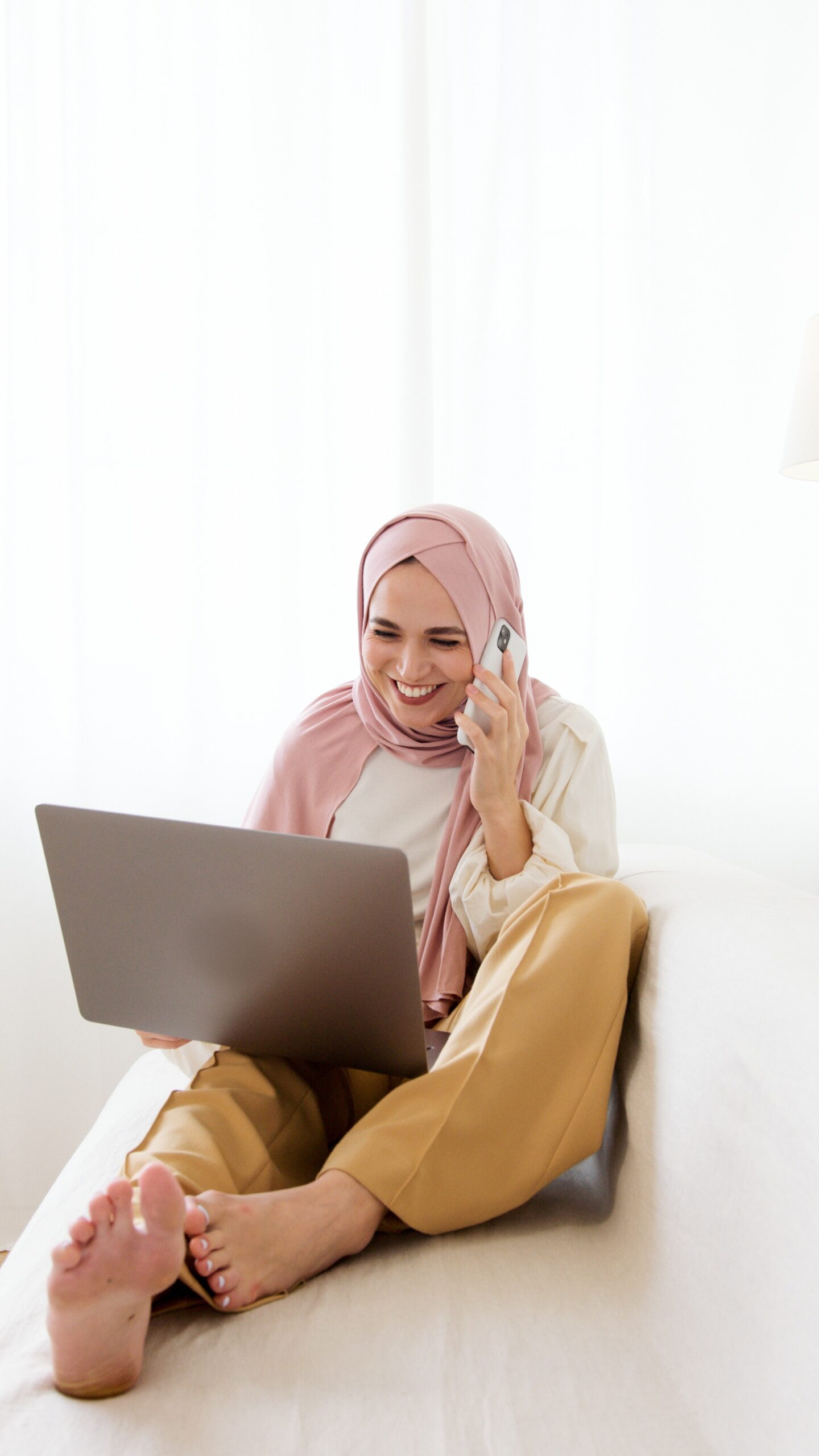Our specialties
Therapy For Women Of Color
At We Rise Therapy & Wellness, we specialize in counseling for women of color from all backgrounds, particularly those who identify as from the South/East Asian and BIPOC communities.
Have Certain Cultural Expectations Kept You From Feeling Calm, Confident, And Happy?
Do you identity as a 1st/2nd gen woman of color? Do you come from a background with strict gender roles and high expectations for success? As a result, are you a perfectionist, struggling with anxiety, or quick to be hard on yourself?
You may be your own worst critic. Having grown up in an environment where you were some form of a “first” in your family, you likely internalized a lot of pressure to succeed. Perhaps the stress—whether related to work, raising children, or managing conflicting cultural standards—has impacted your daily functioning and relationships.
For women from Asian cultures, in particular, certain collectivist values significantly contrast with the American experience. There may be a strong emphasis on family values and self-sacrifice in the name of benefitting the whole, causing you to feel like you have to overexert yourself just to be accepted. Instead of enjoying your activities and connections, your life might feel like a balancing act—requiring more of you than you have to offer.
Perhaps You’re Struggling With Anxiety Or Depression, But Feel Ashamed Of Your Symptoms
In addition to cultural norms around success, there are also strong beliefs about what isn’t acceptable. The mental health stigma exists globally, but some cultures find these topics more “taboo” than others. As a result, issues like depression, anxiety, and trauma are often overlooked, creating the misconception that chronic symptoms belong to those who are “weak” or “unstable.”
The truth is that your emotions—including sadness, anger, and fear—are valid and that mental health support is an option for anyone. However, Black, Indigenous, and People Of Color (BIPOC) and Asian American and Pacific Islander (AAPI) communities experience systemic hurdles that prevent us from receiving effective mental healthcare.
At We Rise Therapy & Wellness, we welcome women of color from all backgrounds into the counseling space, honoring AAPI and BIPOC identities while giving you a chance to challenge some of the unhealthy narratives perpetuating your discomfort. Working together, you can determine what your definition of happiness is and work toward achieving it.

South/East Asian And BIPOC Women Struggle With Both Culture- And Gender-Specific Expectations
Many women of color—especially those who identify as south/east Asian—experience immense pressure to “do it all” and never complain. Conditioned to be deferential to others, we aren’t raised to value healthy boundaries or have strong communication skills. Instead, our cultures tend to mitigate conversations about individual mental and emotional health, emphasizing the need for harmony among the family and community at large.
And even though many of the women around us struggle with similar challenges, our experiences are not normalized and thus cause feelings of shame, embarrassment, and loneliness. We end up feeling like we are “supposed” to be able to juggle all of our responsibilities, burning the candle at both ends. When symptoms of anxiety and depression occur, we may develop the belief that they are reflections of personal weakness rather than unrealistic cultural expectations.
The therapists at We Rise Therapy & Wellness are clinicians of color who can relate to your experience. As south/east Asian women ourselves, we offer culturally aware, AAPI and BIPOC-centered counseling that can help you cope with your challenges.

We Welcome All Women Of Color To The Therapy Space
As a woman of color, you may not be used to feeling validated, either by yourself or others. A therapist of color can guide your healing process, putting your goals at the center of treatment. In gaining more perspective on your experiences, you will be able to identify and assert your needs.
The Process
To begin counseling, you will first work with our client care coordinator to fill out paperwork and get matched with the therapist of color who best suits your needs. During your initial session, your provider will work to understand your background, challenges, and unique goals for therapy.
Throughout ongoing sessions, your therapist will help you explore patterns in your thinking and behavior, peeling back the layers to help you better understand where self-limiting beliefs originated. Viewing these negative self-perceptions against the cultural frameworks from which you come will offer insight into the dynamics shaping your experience of the world.
Because our clinicians are also women of color, they will work to create a collaborative, healing relationship with you that, in and of itself, will be a source of newfound awareness in therapy. However, we will also likely incorporate other therapeutic approaches based on your needs. These might include Cognitive Behavioral Therapy (CBT) and Dialectical Behavior Therapy (DBT), which are particularly helpful for distress tolerance and resolving the cognitive distortions that often affect Asian women and other BIPOC populations.
In addition to the cultural and relational dynamics that we will identify in counseling, we may use Acceptance and Commitment Therapy (ACT) to clarify values and enhance mindfulness. These modalities provide invaluable insight into your emotional pain so that you can learn to live with less stress and anxiety.
It is possible to feel like a calm, confident, self-assured person—even if you’re not used to prioritizing your mental health. Through therapy for women of color, you can be supported on the path to more peace, confidence, and authenticity.
Perhaps You’re Still Not Sure If Counseling Is Right For You…
I am concerned about the cost of therapy.
Counseling is an investment in yourself. The skills, insights, and value added to your life through therapy can be taken with you into every area of your life—even long after the treatment period. When you invest in counseling sessions and reach your goals with a therapist who understands the APPI/BIPOC experience, you invest in a happier, more aware, and more fulfilled life. If cost is still a concern, note that we are considered an out-of-network provider for most insurance companies.
Why should I pay out of pocket for therapy/see an out-of-network therapist?
We don’t take insurance for a few reasons, including out of a desire to customize treatment according to your unique needs. Insurance companies have parameters around diagnoses, treatment plans, and the amount of sessions allotted per client. A diagnosis must be made in order to have treatment covered, and we prefer not to pathologize our clients’ symptoms. A private-pay option ensures your privacy and reduces the limitations that may be associated with a mental health diagnosis. Understandably, the financial investment is a big determining factor when selecting a therapist. However, the perspective of a fellow south/east Asian woman as your therapist can offer invaluable insight into your challenges. Because we understand the culture you come from—and the systemic issues we face as AAPI/BIPOC women—therapy through our practice is likely to be more efficient and effective than counseling with a therapist who does not have culture-specific perspectives.
In my south/east Asian culture, it’s not acceptable for women to go to therapy.
As south/east Asian women ourselves, we understand the stigma of mental health counseling. We know that you may have been raised to believe that problems should be dealt with personally and that if you can’t, it means you’re failing. These negative core beliefs are often culture-specific and damaging. An unbiased AAPI/BIPOC therapist can acknowledge these cultural dynamics while offering you guidance, coping strategies, and relief.
Related Posts
Recognizing the Signs: When It’s Time to Enforce Boundaries
In life, establishing and enforcing boundaries is crucial for maintaining healthy relationships, protecting our well-being, and preserving our sense of self. This article explores the…
Voices Unveiled: Navigating Stereotypes and Breaking Boxes – Aarvi Shah’s Journey
voices unveiled: Navigating stereotypes and breaking boxes-aarvi shah’s journey The stereotypes faced by people of color, especially Asian Americans, are defined as the “model minority…
Your Pain Matters
At We Rise Therapy & Wellness, we are a team of south/east Asian and AAPI women of color who honor the unique cultural experiences and perspectives of our clients. To be matched with a therapist of color who is best suited to your mental health needs, please fill out a consultation form or give us a call at (973) 370 – 2290 Monday through Friday (8a – 8p EST) to get started.

